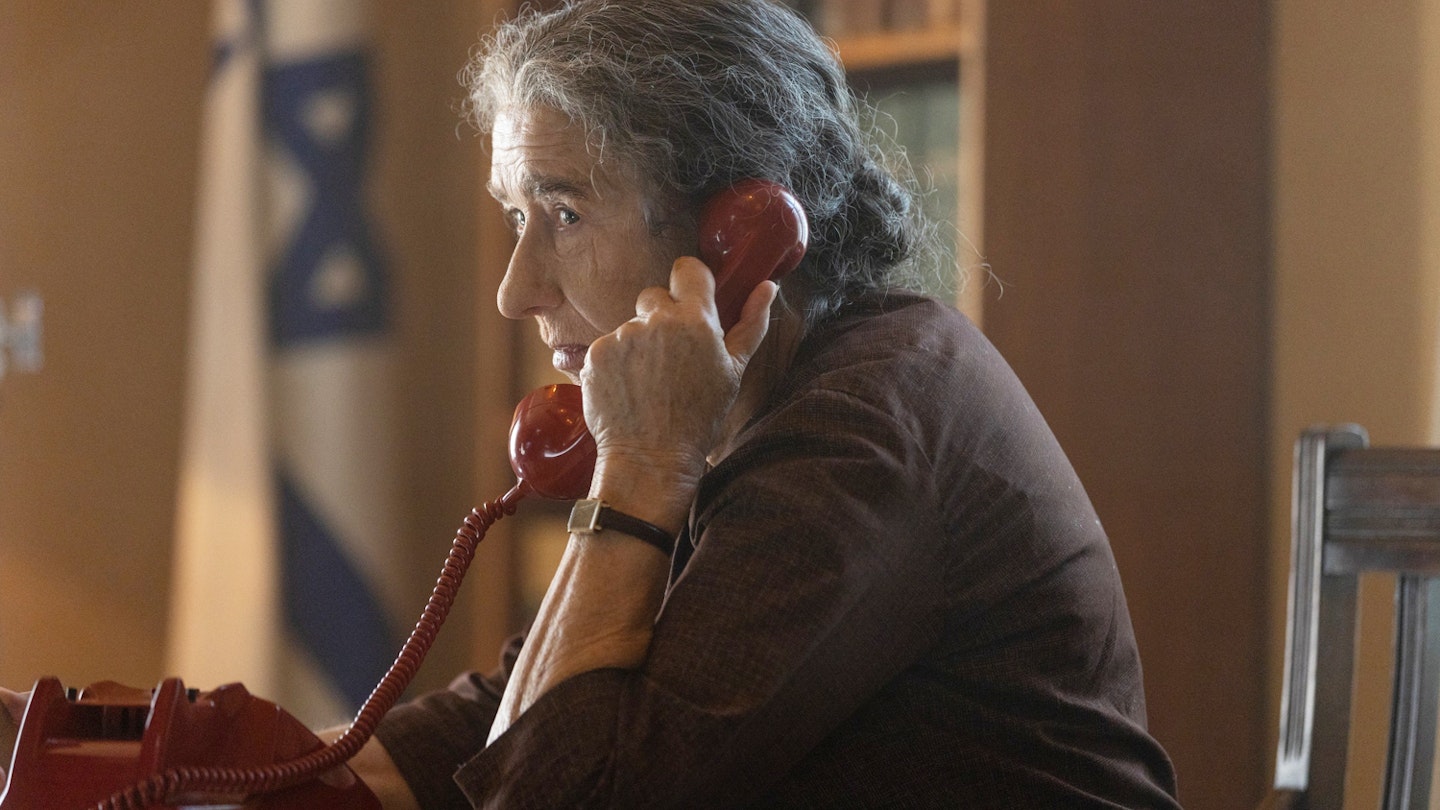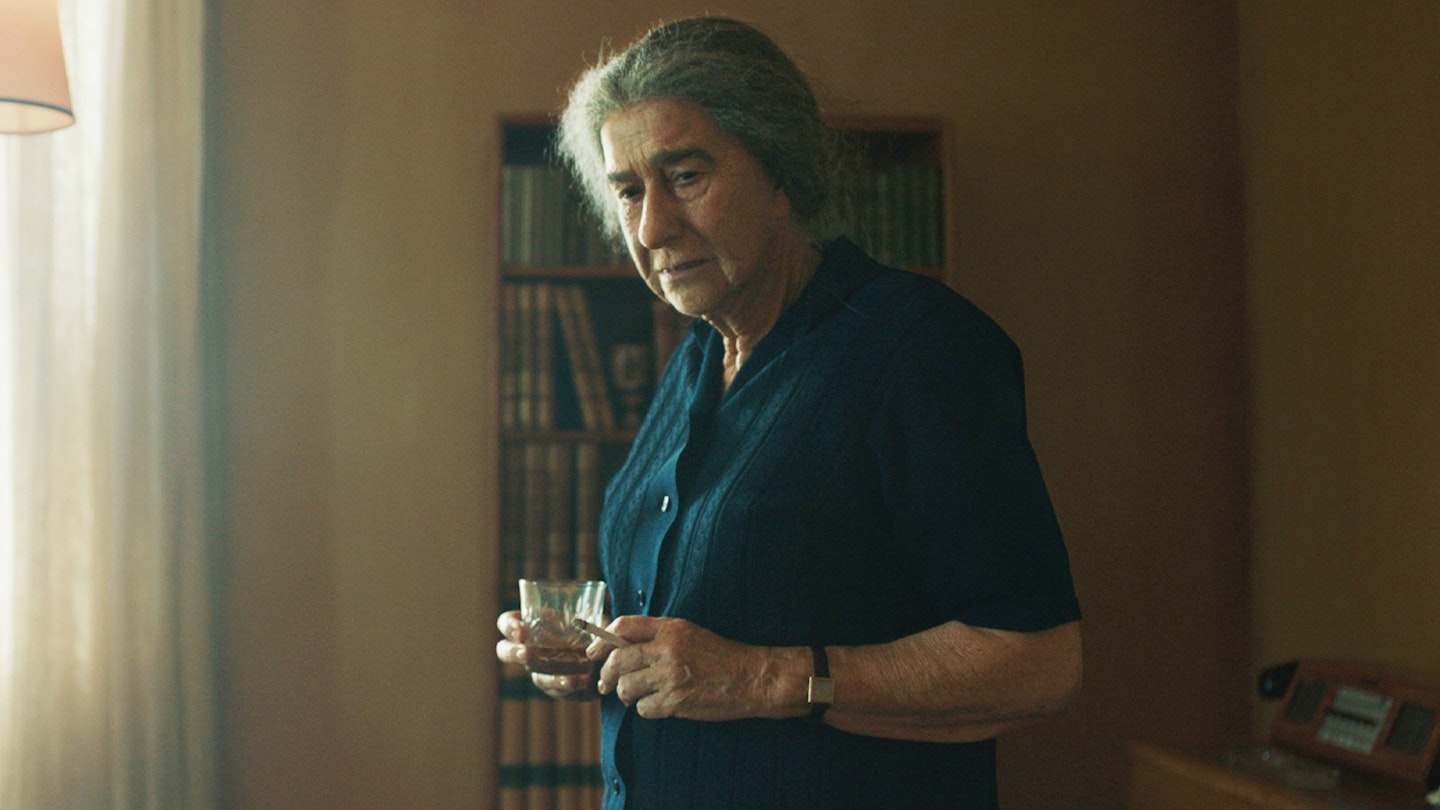Getting to be Prime Minister is one thing, but have you ever smoked more cigarettes than anyone else who ever lived? Golda Meir — in this film at least — unlocks both achievements. Secretly suffering from lymphoma and not doing too well, the Israeli PM (Helen Mirren) regardless smokes at every available opportunity. She inhales nicotine like it’s oxygen, chugging anytime, anywhere, everywhere. She smokes in bed, in her living-room, in cars, in her office, on the roof and just for good measure in hospital, even as she’s lying down seconds before receiving radiation treatment. She is never without a fag, frequently engulfed in a cancerous mist.

The filmmakers are drawing on research here — Meir indeed was a committed chain-smoker — but director Guy Nattiv pounces on her habit, surrounding her in a swirl wherever she goes, making it the biggest of cinematic traits, utilising it to signify what she might be thinking and feeling as her country’s at war. Let alone the wilful self-destruction.
A noble attempt to create a character study while not quite bringing its subject to life
There’s a lot more where that came from in Golda, where unsubtle symbolism also takes the form of insects, birds and blood. It’s a bit much, and a strange old stew, a film that strives to be artful whilst never feeling particularly dynamic; a noble attempt to create a character study while not quite bringing its subject to life. Nevertheless, it’s a compelling enough portrait of a complex clusterfuck.
We meet the 75-year-old Meir in October 1973, as Israel is about to be attacked by Egypt and Syria. Government intelligence suggests something’s going to happen, but for fear of international reprisals she refuses to make a pre-emptive strike, and Israel gets battered. Then follows a blow-by-blow account of the 20-day Yom Kippur War, here played out behind closed doors, in Meir’s offices and war room. Other than one aerial sequence, Nattiv doesn’t show us the battles — instead we hear them, via genuine archival audio recordings from the frontline, Meir and her team listening aghast as troops are killed. It’s upsetting stuff.
Golda shaves some edges off its subject matter — this is all about Meir, with any other perspectives kept to a minimum if not missing entirely. It’s chiefly about Meir’s tenacity and grief, and Mirren, forthright and spiky, channels that well — or as well as she can with a mediocre screenplay. It is very much a movie Meir, all rather studied, the film never truly getting under her skin (although that skin itself, authentically lived-in, is fantastic, courtesy of brilliant make-up artist Karen Hartley Thomas and prosthetic artist Ashra Kelly-Blue). It is both overwrought and undramatic, yet Mirren’s deeply felt performance, and the film’s insistence on intimacy, do enough heavy lifting: despite its shortcomings, Golda is quietly affecting.
